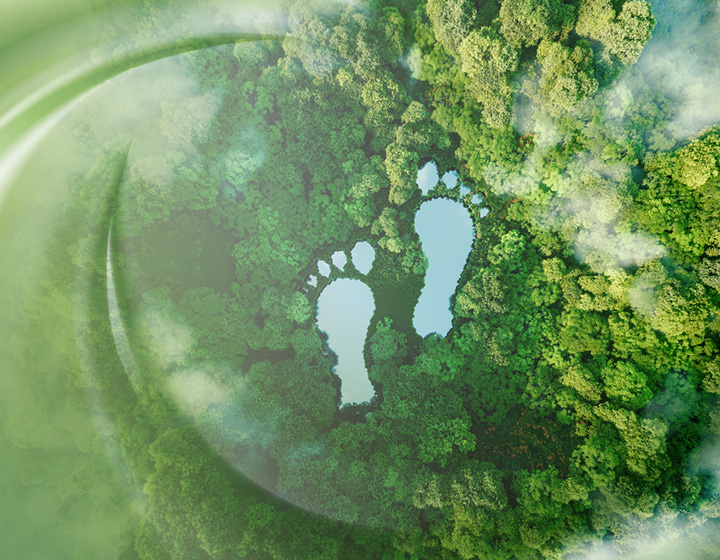Protecting The Environment
Our biggest contribution towards environmental improvement is with our products and solutions, which help our customers. One key objective across all Diversey business units is a keen focus on sustainable solutions that prevent waste, conserve water, save energy, and protect health. Diversey’s customers rely on cleaning, hygiene & infection prevention solutions, technologies, equipment innovations, and services that help lower their environmental footprint. Our goal is to measure the energy, water, waste, and greenhouse gas reductions we deliver to our customers and more than offset the resources we consume in our operations across the same four KPIs.
With Diversey’s products and solutions, we contribute to making the world a better place when we collaborate with our customers.
Annual Customer Savings

Net Positive
Goal: To become Net Positive by 2050
Our net positive goal is driving improvements internally, reducing energy, water, waste, and GHG emissions in our supply chain. As we shrink the Diversey supply chain footprint, we are also delivering meaningful savings for our customers with products and solutions focused on the same four environmental metrics. When the ratio of customer savings divided by our footprint is positive, we are achieving net positive. This means that in addition to just reducing negative impacts, we are enhancing our positive impacts on society and the environment. Net positive serves as a guiding principle for Diversey going forward, driving the ratio further and further positive as we expand the scope to new solutions, innovations, and more efficient operations.

Circular Economy
Goal: 100% of packaging contributes to circular economy by 2030
Diversey is committed to advancing a circular economy: one that closes the loop on waste, keeps materials in use and regenerates natural resources. We continue to innovate to reduce our overall waste and help others do the same, with a focus on using materials and resources efficiently.
Our overall goal is to reduce our packaging footprint. This can be accomplished by increasing packaging efficiency (e.g., higher concentrations), weighting packaging, increasing recycled content, or increasing recyclability. Unfortunately, sometimes these approaches contradict each other. For instance, weight flexible films can be used to package products, but they are often not recyclable since they tend to have multiple polymer layers. In 2020 Diversey found a way to combine all these levers into a single metric to measure success. The method is based on the Material Circularity Index introduced by the Ellen MacArthur Foundation and Granta Design.

Energy and Emissions
Goal: Net zero carbon emissions in our operations by 2050; Set the science-based target in 2024
We will be finalizing our science-based target (SBT) by the end of 2024 as a key milestone in our journey. A SBT represents the amount of greenhouse gas emissions an organization must reduce, as their part of the global economy, to prevent the temperature from warming more than 2°C. Diversey’s SBT is our allocated amount of GHG emissions based on the portion of the chemical industry that we represent.
Some of the actions we take to reduce our GHG emissions and energy usage today include:
- Renewable energy production
- Implement cost effective and energy efficient equipment
- Eliminate wasteful energy consumption
Diversey has recently committed to the SBTi Net-Zero Standard and to setting a robust emissions reduction target at the pace and scale required by climate science. We are joining the Business Ambition for 1.5°C campaign - the world’s largest and fastest-growing group of companies that are aligning with 1.5°C by helping to halve global emissions by 2030.

Water Stewardship in Our Operations
The world is experiencing increased water stress due to climate change, elevating its status as the most precious resource. The majority of Diversey’s cleaning products are water-based solutions that also require water for rinsing after use. Without access to clean water, Diversey cannot make cleaning products. Without water for rinsing, our customers cannot clean. The importance of water stewardship is why we’ve had a goal to improve water efficiency in our supply chain for many years.
Viewing water treatment and hygiene hand-in-hand is essential to change current perceptions and to realise the benefits. Problems in hygiene are often water-related: not necessarily about water usage but concern water treatment. Commit to a water treatment partnership that combines chemistry, engineering and expertise to ensure all factors are analysed to maximize results.

Waste Reduction
Waste reduction strategies at our facilities prove that reducing and diverting waste from landfills can also increase operating efficiency and lower costs. Diversey tracks waste across the following categories:
- Re-Used Off-Site
- Recycled
- Incinerated with Energy Recovery
- Incinerated without Energy Recovery
- Landfilled
The landfill avoidance metric we have historically reported is the ratio of landfilled materials versus total waste from all five categories. To reduce both packaging and chemical waste from returned items, our distributions centers take steps to:
- Repackage – Product packaging that is damaged through handling, transportation or from the customer return process is placed in new containers and returned to inventory whenever possible.
- Repour – Damaged product packaging that cannot be shipped or repackaged is evaluated for sale in the secondary market in wholesale-sized containers at a discounted price to qualified vendors. This includes hazardous materials that would otherwise need to be disposed of.
- Reuse – Damaged product packaging that cannot be sold in the secondary market, repaired in-house or has reached an expiration date is evaluated for returning as a raw material to manufacturing operations. We are currently investigating the beneficial reuse of some expired products with trusted third parties.




